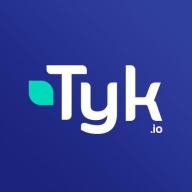

Tyk and webMethods.io are both strong contenders in the API management field, with Tyk offering strengths in modularity and access management, while webMethods.io stands out for its integration capabilities and scalability. webMethods.io is generally considered a better choice for large enterprises seeking comprehensive solutions.
Features: Tyk provides a robust API gateway, analytics tools, and comprehensive security features which are ideal for organizations needing detailed access control and the ability to work with open-source platforms. On the other hand, webMethods.io offers extensive integration possibilities, automation tools, and a suite of features that easily meet the needs of enterprises with complex IT landscapes, with a key focus on broad integration capabilities.
Room for Improvement: Tyk could enhance its cloud capabilities and mature its early-stage features to improve user experience and adoption. Improving developer portal features and interface design could also be beneficial. webMethods.io might consider refining its pricing model to provide more flexibility for smaller enterprises and enhance its API governance tools to match its competitors. Additional user-friendly customizations could improve customer satisfaction and application usability.
Ease of Deployment and Customer Service: webMethods.io's cloud-based deployment reduces maintenance burdens and includes strong customer support, facilitating easier onboarding although it lacks flexibility. In contrast, Tyk offers multiple deployment options such as on-premise and hybrid setups, which are advantageous for companies needing full infrastructure control but require significant internal resources for setup and maintenance.
Pricing and ROI: Tyk is attractive for businesses looking for scalable pricing without heavy upfront costs, potentially offering high ROI for those scaling over time. Conversely, webMethods.io typically presents a higher price point attributed to its comprehensive feature set, yet can yield significant ROI through advanced automation and integration, particularly for enterprises able to leverage its extensive capabilities effectively.
| Product | Market Share (%) |
|---|---|
| webMethods.io | 2.4% |
| Tyk | 2.0% |
| Other | 95.6% |


| Company Size | Count |
|---|---|
| Small Business | 23 |
| Midsize Enterprise | 11 |
| Large Enterprise | 63 |
webMethods.io Integration is a powerful integration platform as a service (iPaaS) that provides a combination of capabilities offered by ESBs, data integration systems, API management tools, and B2B gateways.
We monitor all API Management reviews to prevent fraudulent reviews and keep review quality high. We do not post reviews by company employees or direct competitors. We validate each review for authenticity via cross-reference with LinkedIn, and personal follow-up with the reviewer when necessary.